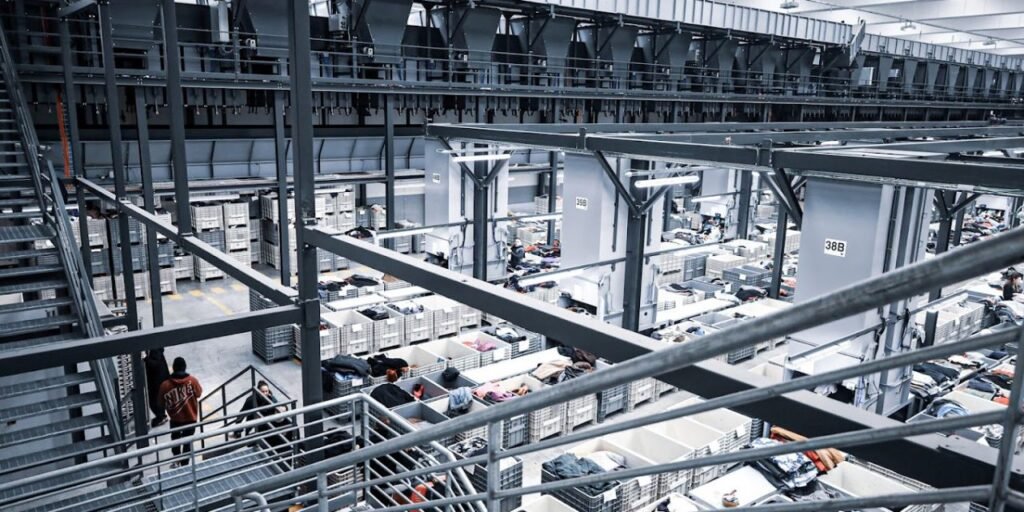
● Innovative Technology: A new automated sorting line from PICVISA will be installed at the Marcianise Esposito facility. It can handle up to two tonnes of worn clothes per hour and categorise it by composition and colour.
● Sustainability Impact: Up to 3.6 kg of CO2 emissions are saved for every kilogramme of recycled or reused clothes, thereby lowering environmental impact and promoting the circular economy.
● Leadership in Circular Fashion: Esposito is a pioneer in sustainable textile management and recycling in Italy and Europe, processing 100 tonnes of discarded clothes per day.
Marcianise, October 22, 2024 — An new automatic clothes sorting line by composition and colour will be installed at Esposito’s Marcianise facility. Esposito is a pioneer in the management and classification of worn clothing in Italy. By introducing its cutting-edge optical sorting technology to a vital market like Italy, PICVISA takes another step towards solidifying its position as a major force in the textile industry.
With cutting-edge 4.0 automation technologies, the Marcianise-based Esposito factory is among the most sophisticated in the nation and currently processes 100 tonnes of old apparel and footwear per day. Through a careful selection and regeneration process, discarded clothing is given a new lease of life here, making it suitable for sale in a variety of global marketplaces.
Combating the environmental effects of the fashion industry, which generates 92 million tonnes of garbage yearly and accounts for 10% of global carbon emissions, requires recovering and recycling worn clothing. The need for raw materials like cotton, which uses 20,000 litres of water to create one kilogramme of clothing, is decreased, and up to 3.6 kilogrammes of CO2 emissions are saved for every kilogramme of clothing that is recycled or reused. By Esposito’s efforts to prolong the life cycle of clothing directly contribute to these reductions, greatly reducing the industry’s environmental impact and assisting in the worldwide transition to a circular economy.
The facility will be renovated in the upcoming months with the new PICVISA automated line, which uses a dual conveyor system to categorise clothes into 24 distinct categories and can handle up to two tonnes of clothing per hour. This innovation, which will incorporate a sophisticated product traceability system that permits precise control at every step of the process, will greatly increase the efficiency and accuracy of sorting clothing by composition and colour.
This initiative is a component of Esposito’s ambitious strategic goal to keep improving the handling of apparel that is intended for both textile recycling and the second-hand market. Esposito’s dedication to sustainability and innovation is strengthened by PICVISA technology, which guarantees that its operations continue to be at the forefront of environmental responsibility and efficiency.
This installation solidifies PICVISA’s position in a vital market like Italy and marks a major milestone in the company’s growth within the textile industry. Esposito, in turn, keeps reaffirming its position as a major participant in the textile industry’s shift to a circular economy and as a pioneer in the management of worn apparel in Italy and Europe.
About Esposito:
Esposito is a well-known business in Italy that specialises in the handling and categorisation of secondhand apparel. With state-of-the-art machinery, the Marcianise facility processes 100 tonnes of worn apparel and shoes every day. Esposito is committed to recycling unwanted clothing so that it may be sold in global markets, supporting the circular economy and sustainability.
About PICVISA:
With a strong background in a range of industrial domains, PICVISA is a leader in optical separation solutions. Another step towards becoming a major reference in the textile industry, particularly in a strategically important market like Italy, has been taken with the installation of its technology at the Esposito factory in Marcianise.
